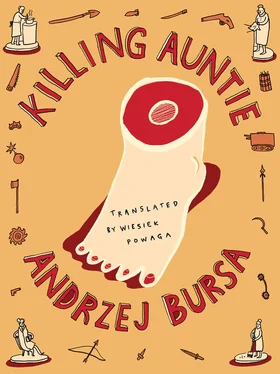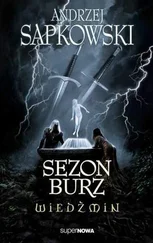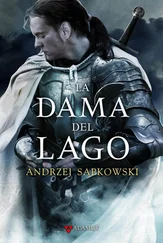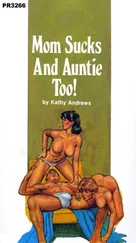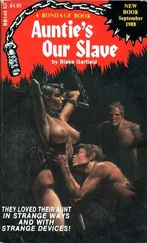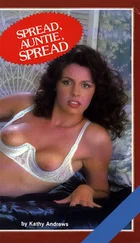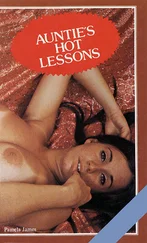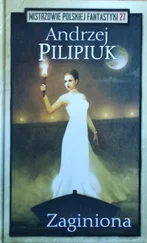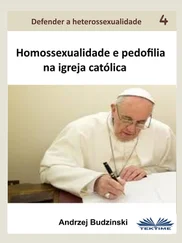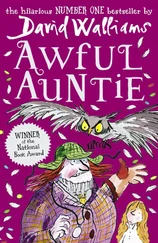When we got up The Girl immediately returned to her previous role. She helped me wipe off the snow and in a dry, matter-of-fact tone, she observed that I was cold, and thus she invited me in for a cup tea. The caretaker’s house was not abandoned, as I thought. We sat on the edge of a plush, richly tasseled sofa and drank our tea in silence. Apart from the sofa the room didn’t contain any other furniture. The kitchen, however, was crammed with chairs, a long ungainly table and a sideboard.
“My father,” said The Girl, “is of the opinion that I can receive guests only when the room is fully furnished. That is, when it has a table, armchairs, a linen cupboard and a clock. He thinks that now it would be improper to bring people in here. But I love you.”
The Girl slurped her tea and we fell back into silence. I looked around the room and suddenly noticed a white piece of paper lying on the shiny floor, the same kind of paper the monkey had been looking at. I decided not to pay it any attention, but the paper seemed to fill the whole room and draw my eyes with magnetic force. I was trying to concentrate on her profile and her hands but my eyes, even when wholly focused on her figure, slipped down onto the floor and secretly sought out the accursed piece of paper. The Girl sat slumped, saying nothing and sipping her tea, of which she seemed to have prepared copious quantities for the two of us. I turned my eyes to the window but somehow the card still remained within my field of vision. The Girl lightly took my hand. I reciprocated with a gentle, though rather mechanical, squeeze. The presence of that card embarrassed me.
“Let’s kiss,” offered The Girl.
We began to kiss, but we were not enjoying it. Our kisses were cold and clumsy. I realized that The Girl simply had no idea how to kiss, as if she had never kissed in her life. We lay next to each other.
“We love each other,” said The Girl indifferently.
“I love you and you love me,” I confirmed, kissing her gently on the cheek. I fell into musing about our few common experiences. I told her about our little fir hut deep in the forest. The Girl listened quietly and when I fell silent she said:
“We built the little fir hut in five minutes. It’s all nonsense. The little hut you were talking about is impossible, isn’t it. My big, silly boy. You believed in a fir hut …”
I wanted to protest but she calmed me down with a touch. The sound of a bell came from behind the window; with it came the sound of animals from all corners of the zoo. The Girl jumped off the sofa.
“Father is about to start feeding the animals. Come with me, you have to see this.”
The Girl bent down and picked up the white card from the floor. She crumpled it quickly in her hand, then tore it into little shreds and threw it into the kitchen.
“I’ve had enough of this filth,” she sighed. The bell whose ring had gotten us out of the empty room was affixed to the shaft of a cart, which was drawn by a donkey. A small man wrapped in a long black sheepskin and a big hat walked alongside the cart.
“We have a guest today,” called The Girl. “I wanted to show him the feeding. You will start with the predators, won’t you? Great. I knew the predators would be first.”
The father didn’t answer but The Girl kept talking, answering her own questions, laughing and teasing. The father stopped the cart in front of the low long shed and took out a basket filled with chopped-up meat and bones. His face was so swaddled in the collar, scarf and hat that I could not make out his features. They didn’t seem to be that interesting anyway; his face was flat and unshaven. The father went back once more and brought out a second load of meat. When he came out for the third time he was carrying my auntie’s corpse. From the first glance I had no doubt it was the very same corpse. Its limbs were cut off by the knees and elbows, the head chopped off with an axe. Father put the naked corpse on the cart and we moved on. The Girl squeezed my hand and whispered into my ear:
“We’ll be feeding our cats, you know. Our wonderful lynxes.”
I nodded my head and lightly brushed her head with my lips. We toured the whole zoo, stopping in front of the predators’ cages. All that time I’d observed the naked torso trembling on the cart, making sure it indeed belonged to my murdered auntie. There seemed to be no doubt. The torso bore all the familiar marks: the signs of my victories and defeats, and on its side I even recognized the bite marks from Aunt Emilia and Granny. At last we got rid of all of the feed except for the corpse, which remained alone in the cart.
We were approaching the lynx cage. Despite a certain embarrassment, I felt joy. Now the nightmare of so many days was about to disappear down the lynxes’ throats. I thought: here I was, accompanying my aunt on her final passage and I felt sorry that I might be saying goodbye to the corpse, to all that struggle, which had cost me so much effort and energy. Father, as if eavesdropping on my thoughts and hearing the word “funeral,” took his hat off and followed the cart bareheaded. The Girl let go of my hand and lowered her head. Crows cawed among the treetops.
The lynxes, furry and excited, their eyes burning with a healthy appetite, crowded at the bars. Father raised the metal trap door at the bottom of the cage and slid in the torso. The animals began to eat. We watched how quickly and skillfully they dealt with the awkward body, how before our eyes the corpse was changing and losing its form. When the female ate her way through the side bearing the marks of my old girls’ teeth, I sighed a sigh of relief. The corpse lost its attributes, was stripped of its personality. Finally, there was just a heap of bones of the floor of the cage. Father unbuttoned his sheepskin, pulled out a pack of cigarettes and offered me one. I looked into his eyes and recognized them; he winked at me discreetly. His waistcoat was red. The Girl cuddled up to me and put her arm around me.
We became a family.
AUNTIE RETURNED FROM THE SANATORIUM ALL WARM AND tan. She wrapped herself around my neck and kissed me on both cheeks. I felt a little awkward with her. I was at a loss how to explain the presence of her corpse in the bathtub, and then I was a little thrown by her new shawl and beret, the new buttons on her familiar coat. A long absence always creates that sort of distance. But Auntie was practical and good-natured, as usual.
“I haven’t seen you for so long,” she was speaking quickly, “how have you been getting on, my boy? I bet the flat is a dump, God have mercy on me. Why haven’t you written? I was beginning to get worried, believe it or not. Have you been attending your lectures? I presume the place is just as I left it.”
Weighed down by Auntie’s bag I walked beside her, smiling. I didn’t even try to answer any of her questions, knowing she wouldn’t give me time to form a sentence. Auntie took me under my arm and chattered away.
“Shall we take a taxi? But I see they’re all taken. We’ll take a droshky, or let’s go on foot. Such wonderful sunshine. Let’s run.”
Holding me fast by my arm she broke into a trot. She was running down the pavement, sweeping the passersby out of her way. Auntie’s heavy bag dragged me down, knocking about my knees. I was beginning to run out of breath. I watched Auntie’s face, hoping it would soon be covered in sweat, and she would run out of breath too. Nothing of the sort. Auntie was trotting along, splashing mud with her boots. Apparently the sanatorium did her a lot of good. Before I knew it I was hanging off her arm, shuffling my feet just fast enough to keep my balance.
“How about some coffee?” Auntie screamed into my ear.
We were just approaching a coffee shop. I couldn’t answer. I could hardly breathe and my eyes were watering. We burst into the coffee shop like a hurricane. Auntie ordered two coffees and two cakes. Munching forlornly on the cake, I listened to the outpouring of words from my auntie. There was no way I could get a word in edgewise or explain anything. At least I was pleased I didn’t have to run with a heavy bag down a muddy street.
Читать дальше
